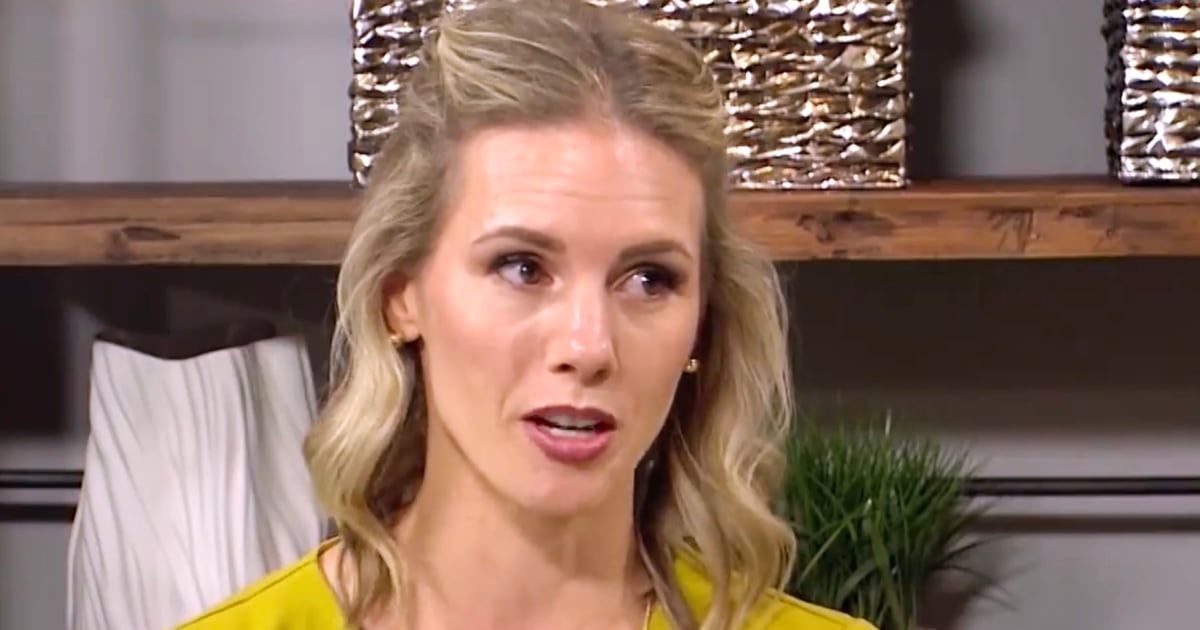Ruby Franke, the mother of six behind the family YouTube channel “8 Passengers,” has been charged with six counts of felony child abuse by the Washington County Attorney in Utah, a spokesperson for the attorney’s office confirmed to NBC News on Tuesday.
Franke and her business partner, Jodi Hildebrandt, were arrested last week after law enforcement found Franke’s 12-year-old son emaciated and with open wounds and duct tape on his wrists and ankles. The boy had climbed out of a window of Hildebrandt’s home and ran to a neighbor house for help, according to a probable cause affidavit acquired by NBC News.
Franke’s 10-year-old daughter was found at Hildebrandt’s home in a similar malnourished condition, according to the affidavit. Officials said the condition of the children was so severe that they were transported to a local area hospital. Franke’s other four children were taken into the care of Utah’s Division of Child and Family Services.
Hildebrandt was also charged with six counts of felony child abuse. Each count carries a prison sentence of up to 15 years and a fine of up to $10,000, the county attorney told NBC News in an emailed statement.



As someone who was homeschooled and now holds a master’s degree, I will proudly own the ‘weirdo’ title and make no claims to normalcy. And I suspect most of my 7 siblings would do the same.
But saying we’re all ‘likely retarded’ is a bit peculiar to me. Most homeschoolers I’ve met (which I suspect is more than most folks, being from inside the community) come from high-functioning or highly-religious families, with very few notably ‘retarded’. How many homeschool kids have you actually known?
Maybe an unpopular opinion, but I’m very against homeschooling. It breeds religious zealotry, stunts communal empathy, an open mind, and critical thinking skills.
All this talk about grooming, and that’s what I see homeschooling as (though not really in the sexual sense).
Eh… I see where you’re coming from, and I’m generally against homeschooling as well. For various reasons, I wish I hadn’t been and wouldn’t do so for my child.
That said, I’m inclined to disagree. It only promotes what the parents put into it - which, yes, often is a lot of religion, but it isn’t intrinsic to the practice. The religious component I suspect is where you get the stunting of open-mindedness and critical thinking ideas, but fwiw I and several of my siblings have since left the faith for atheism, and even those who still participate in religion are mostly rather progressive. I do fully recognize that I and my siblings are probably the exception in this regard, so in those aspects I think your opinion generally represents the actual outcomes of homeschooling as it exists in the US, and probably is not that unpopular outside of homeschooling circles - but I would reiterate that I don’t think it’s intrinsic to homeschooling; rather, I think it’s a result of who in the US tends to choose to homeschool.
As for the idea that it stunts communal empathy, I’m a little bit baffled. I work in a mental hospital, one of my sisters has spent a year volunteering at orphanages in Ghana, one of my cousins (who was also homeschooled) runs a rural mission hospital in Bangladesh, etc… My observation is that most homeschooling families are rather pro-social and fully embrace the concepts of community and communal support of one another (even if they have eaten the socialism-is-bad propaganda; their rationale then is just that charity should come from the community itself rather than being subject to government mandate and bureaucratic inefficiency), so I’m curious what gives you that idea.
not the person you replied to, but someone with similar opinions: of your 3 examples, only you are still working in the community you presumably grew up in and live in. homeschooling can make it difficult to feel tied to your local community; often, they are perceived as “other” and feel themselves separate, at least the ones I’ve met. you may all feel driven to work for “communal good”, but it seems like it’s often done as an outsider to the community. there’s no “communal empathy” because you(generally, the home schooled) aren’t part of the community.
I have awful social anxiety - when I was little it was just called “painfully shy” - and my mother considered home schooling as an alternative. my grandmother was an elementary school teacher in the local public school system, and said the most valuable thing they taught in school was how to navigate socially. everything else can be taught outside school, but it’s extremely difficult to give kids the opportunity to learn societal norms and how to deal with peer groups when they aren’t interacting with people outside their small group on a daily basis. I’m honestly not sure how well I’d function in society as an adult if my mother hadn’t listened to my grandmother. I learned a lot of my social skills at school, more than I could in church or clubs where the peers were fewer and our similarities greater.
Appreciate the reply. Perhaps my view of homeschooling is all hyper-religious families who tend to be the evangelical type, as a whole I see that population of people as lacking empathy, critical thinking skills, etc.
I just don’t see the need for homeschooling as it just perpetuates this evangelical religious fervor. Besides, we live in a society of different backgrounds, religions, and ethnicities. Schools are a good place to meet people who are different than you.
Probably the “highly-religious” part.